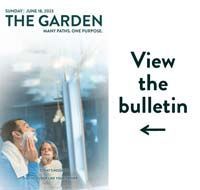You Look Like Your Father
Father's Day
Fatherhood means different things to different people. In the best of circumstances, the word fatherhood brings up feelings of love, joy, gratitude, responsibility, and sacrifice. We all have different relationships with our fathers - sometimes complex and troubled, other times a source of comfort and support. Regardless, fathers -- and father-figures -- can profoundly impact who we are and how we see ourselves.
Naturally, for those with positive paternal relationships, Father's Day represents a time to celebrate and express gratitude for a father or father-figure's support and love. For other people, though, fatherhood comes with negative connotations. Many of us have troubled relationships with our fathers for any number of reasons, many of them painful. In such cases, Father's Day may evoke mixed emotions - feelings of resentment, anger, or even indifference. But fatherhood is not only biological and not even, necessarily, parental. Anyone, regardless of gender or ancestry, can be a father in spirit or practice.
At their best, fathers act as mentors, role models, and guides, helping influence our personalities, values, and beliefs. They offer us support, wisdom, and guidance in times of need, and we carry these lessons with us for the rest of our lives.
It's no secret that family is one of the things that drives us. Fatherhood shapes us, changes us, and offers us learning experiences for our whole lives. We can define "father" in many ways, and it is not exclusively about parenting. A father may provide, guide, protect, teach, nurture, inspire, serve as a role model. A father loves. And a father is -- being human -- flawed and complicated. This Sunday we will celebrate our Garden fathers and look at how we can all help in parenting our most precious resource.












